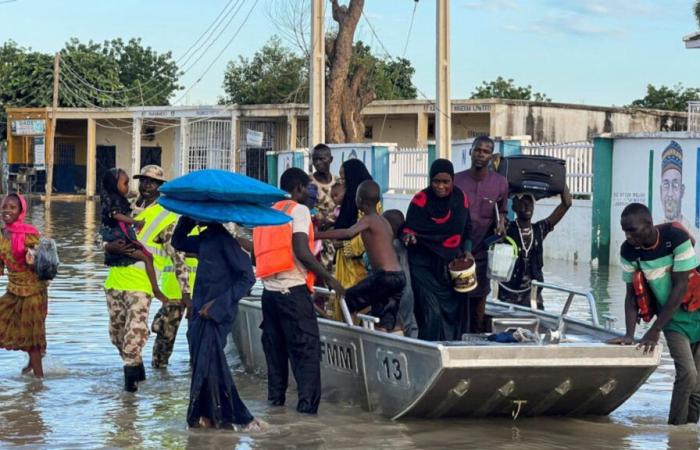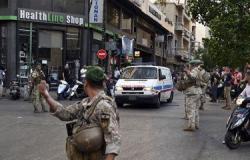Nearly 40 dead, 400,000 displaced people. In northern Nigeria, in Maiduguri, the humanitarian crisis remains major. Seven days ago, the Alau dam located 20 kilometers from the capital of Borno State collapsed following torrential rains. A disaster that adds to the food and security crisis affecting the whole of northern Nigeria. A crisis situation that the local authorities are trying to curb with the support of the United Nations. Our special guest from Africa this Tuesday is Mohammed Malick Fall, he is the UN Under-Secretary-General, Resident Coordinator in Nigeria, in charge of the humanitarian response.
RFI: Mohammed Malick Fall, one week after the Alau dam burst, has the humanitarian situation stabilized today?
Mohammed Malick Fall: We cannot yet talk about stabilization. I was in Maiduguri the day before yesterday and I was able to see that not only is the number of people affected increasing – we are talking about 400,000 – but the number of displaced people is also increasing. We have exceeded 100,000 displaced people. The conditions are horrible, heavy congestion, sometimes extremely limited sanitation and hygiene conditions. Lack of food, sick children. Let us not forget that all this is happening on land that was already very fragile, Borno State has been the epicentre of the Boko Haram crisis since 2009. And it is in this context that this flood is almost making us go backwards in terms of the work that was being undertaken to resolve the issue of displaced people in the long term.
You just said it, you were in Maiduguri on Saturday. Concretely, what does the capital of Borno State look like?
I saw a city that was actually cut in two, part of the city occupied by water. There are parts of the city that are still inaccessible, there are even populations that we cannot access, to get them out of their homes where they are at the moment. Efforts continue from this point of view, but we are not certain that all the people have been evacuated from the places that are affected by the flood.
Six days later, is there still water in the city?
There is still a lot of water in the city. And I believe that this water will remain for a long time.
This disaster also occurs in the midst of a food crisis, particularly in the middle of the lean season?
Not only is it a lean period, but it is also in a context where, because of the economic reforms undertaken by the new administration, we have observed and have been observing for several months galloping inflation, especially inflation on foodstuffs. We are even talking about 40% inflation over a year, in addition to the fact that we are now in the lean period. The big fear that I have and that I observe is also what impact this flood will have on the harvests. Because if people are prevented from doing field work, if the water compromises the harvest, we risk finding ourselves with an even more difficult season than expected. While all our hopes were that there would be a good season and a good harvest to have more availability of food products on the market.
Are you already calling for vigilance and for anticipation of the months to come?
I must admit that, at the moment, floods are affecting a lot of states in the Northeast and Northwest of Nigeria, whose main activity is agriculture. So it is also an alert, not only to mobilize and save the lives of the populations who are directly affected. To race against time to avoid epidemics, I am thinking especially of cholera, because we also know very well that access to drinking water, limited access to drinking water can lead to these epidemics. But beyond the immediate needs and beyond the immediate interventions to save lives or reduce the vulnerability of the people affected, the question that must be kept in perspective is in the weeks, in the months to come. If the harvests are compromised, what consequences will this have on the deterioration of access to food, of access to products that people need for their daily survival?
Do we hear any real concern?
I am very worried indeed, because this is a crisis that is superimposed on other crises and therefore in these conditions, having a deterioration as we are seeing could have much more serious consequences than we perceive today.
Derna in Libya a year ago, Arbat in Sudan at the end of August, the Maiduguri dam last week, disasters on dams are multiplying. How can we prevent these major accidents?
It’s not all about climate change. I also believe that the preparation of states for this type of disaster is something that needs to be strengthened. In particular, the monitoring and maintenance of these infrastructures such as dams and bridges. We, the United Nations, in any case, the lessons we learn are that we will need to strengthen, accelerate in this area, educate the populations, ensure that populations do not settle in areas that are very prone to this type of disaster. And also set up early warning systems that allow populations to be evacuated and alerted before disasters reach a certain level.
Nigeria: Maiduguri City Under Water After Dam Burst






